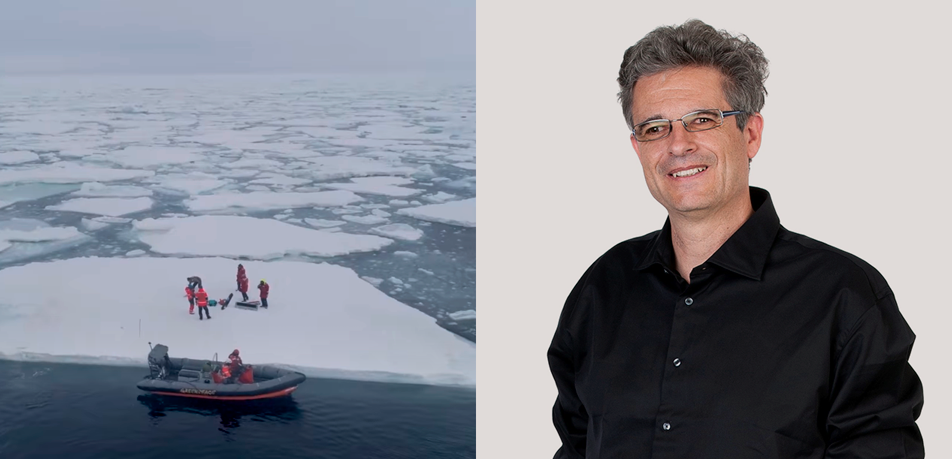Climate Emergency

People are gradually coming to the undeniable realization that we are facing a climate emergency and that our window of time to successfully tackle the situation is shrinking. What I'm not clear on is whether political leaders are aware of the fact that the response from EU member states to this crisis, which threatens not only our environment, but our civilization, is nowhere near ambitious enough. Greenpeace isn't alone in saying this—so does the scientific community, the young generation, even the European Commission, and countless companies.
[[{"fid":"20627","view_mode":"default","fields":{"format":"default","alignment":"","field_file_image_alt_text[und][0][value]":false,"field_file_image_title_text[und][0][value]":false},"type":"media","field_deltas":{"1":{"format":"default","alignment":"","field_file_image_alt_text[und][0][value]":false,"field_file_image_title_text[und][0][value]":false}},"link_text":null,"attributes":{"height":644,"width":678,"style":"height: 475px; width: 500px;","class":"media-element file-default","data-delta":"1"}}]]Greenpeace’s scientific team studying the effects of climate change in the Arctic.
During the most recent meeting of the European Council, European leaders were supposed to reach an agreement that would prioritize the climate crisis and push for net zero emissions across Europe by 2050. Although Greenpeace sees this as insufficient and believes the goal should be 2040, it would have at least provided a clear indication of Europe's capacity for leadership in the fight against climate change. Unfortunately, the European summit in mid-June was a resounding failure and ended without any agreement at all. If it is true that political leaders are seriously considering the possibility of declaring a climate emergency, as already happened in British Parliament, then I urge them to go beyond mere slogans that might ultimately amount to nothing. Climate emergency and a lack of ambition in, for example, the pace of reducing greenhouse gas emissions are at odds, and that's precisely what is happening right now.
We have ten years to lay the foundations for a solution that will inevitably require an ecological transition of our current economic model. And seeing this transition in technological terms isn’t enough. It will require a radical change in mindset, in production and consumption models, in social justice, because, above all, this ecological transition has to be fair.
[[{"fid":"20628","view_mode":"default","fields":{"format":"default","alignment":"","field_file_image_alt_text[und][0][value]":false,"field_file_image_title_text[und][0][value]":false},"type":"media","field_deltas":{"2":{"format":"default","alignment":"","field_file_image_alt_text[und][0][value]":false,"field_file_image_title_text[und][0][value]":false}},"link_text":null,"attributes":{"height":722,"width":1080,"style":"height: 334px; width: 500px;","class":"media-element file-default","data-delta":"2"}}]]
With Greenpeace's interactive tool, you can look up all of the actions that European cities and governments are taking to lower transport emissions.
The Spanish government is among the countries pushing for the EU to set more ambitious goals. However, on a national level, climate and energy plans and legislation have to be more ambitious, and by 2030 we have to reduce emissions by 55% compared to 1990. There is no doubt that the Spanish government is taking important steps in the right direction, but it is not enough. The European Commission includes Spain among the countries with the most ambitious plans to combat climate change, but this doesn't mean they are ambitious enough due to the simple fact that the overall EU objectives fall short, as do those specific to Spain. In this matter, half measures won't do. On a national level, we need legislation that sets a phase-out date for coal and the sale of fossil-fuel powered cars before the end of the decade, and we need to introduce a 100% renewable energy system by 2030.
The heads of state need to appoint a EU Commission president—which seems anything but easy—who will tackle the climate and environmental crisis and make it a priority in the European political agenda. Europe needs to adopt policies that protect people and the planet and put an end to social inequality. This is the EU's last chance to show its willingness to pick up the pace on climate action prior to the special UN climate summit in New York in September. The scientific community is demanding faster and more ambitious action. It has made this perfectly clear, time and again. Young people—the generation that will suffer the consequences of the decisions made today—is taking to the streets every Friday, demanding decisive and urgent action now.
[[{"fid":"20632","view_mode":"default","fields":{"format":"default","alignment":"","field_file_image_alt_text[und][0][value]":false,"field_file_image_title_text[und][0][value]":false},"type":"media","field_deltas":{"3":{"format":"default","alignment":"","field_file_image_alt_text[und][0][value]":false,"field_file_image_title_text[und][0][value]":false}},"link_text":null,"attributes":{"height":681,"width":1023,"style":"height: 333px; width: 500px;","class":"media-element file-default","data-delta":"3"}}]]One of Spain's ten most devastating wild fires of the 21st century, in Cortes de Pallás (Valencia), where 30,691 hectares burned in June 2012.
The climate emergency requires leadership, courage, commitment, and concrete, ambitious measures and funding. Time is running out, which is why it is so crucial for the EU to up its commitment. This is why I want to close with an appeal to up-and-coming European leaders to accept the fact that taking more ambitious action against climate change is of utmost importance.
